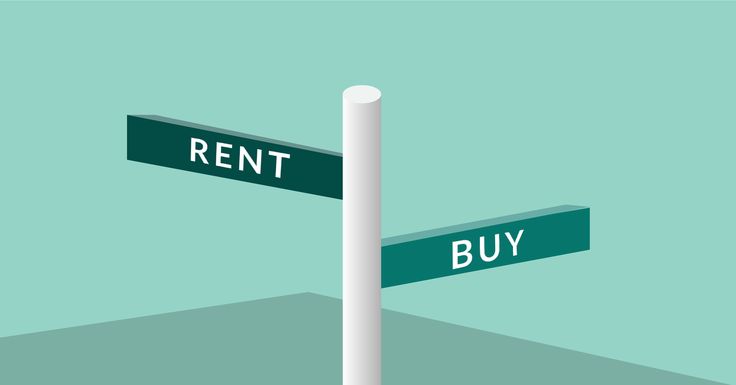Overview of Buying vs. Renting

Is it better to rent or buy a house? The decision to buy or rent property is one of the most significant financial choices individuals and families face. This decision impacts not only your financial health but also your lifestyle and future plans. Understanding the financial implications and lifestyle considerations of each option is crucial for making an informed decision.
Buying property often involves a substantial investment and long-term commitment, while renting offers flexibility and lower upfront costs. Each option has its own set of benefits and drawbacks, making it important to analyze both from various perspectives.
The Importance of Managing Debt

Debt management is a critical aspect of financial health and stability. Properly managing and reducing debt can free up resources for savings and investments, improve credit scores, and reduce financial stress. Effective debt management involves understanding different types of debt, employing strategies to reduce debt, and adopting practices to prevent future debt accumulation.
2. Financial Implications of Buying vs. Renting

Buying Property
Upfront Costs
- Down Payment: Typically ranges from 3% to 20% of the home’s purchase price. A larger down payment reduces the loan amount and can help you avoid private mortgage insurance (PMI).
- Closing Costs: Include fees for the loan application, appraisal, inspection, title insurance, and attorney services. Closing costs generally range from 2% to 5% of the home’s purchase price.
- Moving Costs: Include expenses related to relocating, such as hiring movers, packing supplies, and travel expenses.
Ongoing Costs
- Mortgage Payments: Include principal and interest payments. The size of the mortgage payment depends on the loan amount, interest rate, and loan term.
- Property Taxes: Vary by location and are usually assessed annually. Property taxes can be a significant ongoing expense.
- Homeowner’s Insurance: Provides coverage for damages to the property and liability. Costs vary based on location, property value, and coverage levels.
- Maintenance and Repairs: Homeowners are responsible for routine maintenance and unexpected repairs. This includes everything from lawn care to fixing broken appliances.
- HOA Fees: If the property is in a community with a Homeowners Association (HOA), you may need to pay monthly or annual HOA fees for community services and amenities.
Equity and Appreciation
- Equity: Refers to the portion of the home’s value that you own outright. Equity builds over time as you make mortgage payments and as the property’s value increases.
- Appreciation: The potential increase in the property’s value over time. Appreciation can contribute to wealth building if the property’s value rises significantly.
Tax Implications
- Mortgage Interest Deduction: Interest on mortgage loans is often tax-deductible, which can reduce taxable income.
- Property Tax Deduction: Property taxes may also be deductible on your federal tax return.
- Capital Gains Exclusion: If you sell your primary residence and meet certain criteria, you may be able to exclude up to $250,000 ($500,000 for married couples) of capital gains from taxes.
Renting Property
Upfront Costs
- Security Deposit: Typically equal to one or two months’ rent, the security deposit covers potential damage and ensures the landlord against financial loss.
- First and Last Month’s Rent: Often required upfront before moving in. This provides the landlord with initial rental income and reduces the risk of missed payments.
Monthly Rent
- Rent Payments: The primary ongoing cost of renting. Rent can fluctuate based on market conditions, location, and property features.
- Utilities: Depending on the lease agreement, utilities such as water, gas, and electricity may be included in the rent or paid separately.Is it better to rent or buy a house?
Maintenance and Repairs
- Landlord Responsibilities: Generally, landlords are responsible for maintenance and repairs. This includes addressing issues such as plumbing problems, appliance malfunctions, and structural repairs.
- Tenant Responsibilities: Renters may be responsible for minor repairs and upkeep, such as changing light bulbs or maintaining cleanliness.
Flexibility and Mobility
- Leasing Term: Rental agreements typically last for one year but can vary. Shorter leases offer more flexibility to move if needed.
- Relocation: Renting provides the option to move more easily for job opportunities, lifestyle changes, or personal reasons without the burden of selling a property.
3. Lifestyle Considerations of Buying vs. Renting

Buying Property
Stability and Personalization
- Homeownership Stability: Owning a home offers long-term stability and security. You have control over your living environment and are not subject to lease terminations or rent increases.
- Personalization: Homeowners can make modifications and improvements to their property, such as renovating rooms, landscaping, or decorating according to personal preferences.
Long-Term Investment
- Wealth Building: Real estate can be a valuable long-term investment, potentially appreciating in value and building equity over time. Homeownership can contribute to overall wealth accumulation.
Community and Ownership
- Community Involvement: Homeownership often fosters a sense of belonging and community. Homeowners may be more invested in their neighborhoods and involved in local activities.
- Ownership Pride: There is a sense of pride and accomplishment associated with owning a home. It represents a significant personal and financial milestone.
Renting Property
Flexibility and Mobility
- Ease of Relocation: Renting provides flexibility to move without the complexities of selling a property. This is advantageous for those who anticipate relocating frequently or prefer not to commit to a long-term location Is it better to rent or buy a house?
Less Responsibility
- Lower Maintenance: Renters are generally not responsible for major repairs and maintenance, which can reduce stress and financial burden. Landlords handle significant repairs and upkeep.
- Reduced Financial Risk: Renting avoids the financial risks associated with property value fluctuations and market downturns.
Lifestyle Preferences
- Urban Living: Renting can be more practical for those who prefer urban living with proximity to work, entertainment, and amenities. Renting in a desirable location may be more feasible than purchasing property.
- Short-Term Needs: For individuals with short-term plans or uncertain future, renting offers a temporary solution without the commitment of homeownership.Is it better to rent or buy a house?
4. Making the Decision: Buying vs. Renting

Financial Factors to Consider
- Affordability: Evaluate your current financial situation, including income, savings, and debt levels. Consider whether you can afford the upfront costs and ongoing expenses of homeownership.
- Market Conditions: Analyze real estate market conditions, including property prices, interest rates, and rental rates. Determine whether it’s a favorable time to buy or rent based on market trends.
- Investment Goals: Consider your long-term financial goals and whether buying or renting aligns better with your objectives. Homeownership can be a valuable investment, while renting offers flexibility.
Personal and Lifestyle Preferences
- Stability vs. Flexibility: Assess your preference for stability versus flexibility. Homeownership provides stability, while renting offers mobility and fewer responsibilities.
- Lifestyle Needs: Consider your lifestyle needs, such as proximity to work, schools, and amenities. Determine which option better meets your current and future lifestyle requirements.
Market Conditions
- Real Estate Trends: Research current market conditions, including property appreciation rates, rental rates, and economic factors. Make an informed decision based on the state of the housing market.
- Interest Rates: Evaluate current mortgage interest rates and their impact on the affordability of buying a home. Lower rates may make homeownership more attractive.
Long-Term Goals
- Future Plans: Consider your long-term plans, including career aspirations, family needs, and retirement goals. Choose the option that best supports your future plans and financial objectives.
5. How to Reduce and Manage Debt Effectively

Understanding Debt
Types of Debt
- Secured Debt: Debt backed by collateral, such as a mortgage or car loan. If you fail to repay, the lender can seize the asset.
- Unsecured Debt: Debt not backed by collateral, such as credit card debt, medical bills, or personal loans. This type of debt generally has higher interest rates.
- Revolving Debt: Debt with a credit limit that you can borrow against and repay, such as credit cards. Balances can fluctuate
If you want to rent or buy a house you can use this article if you want to know if Is it better to rent or buy a house? If you want to see which is a better option you can read this article and ask a experienced person also if you Is it better to rent or buy a house?
If you want see more of our blogs click this hyperlink; A youtube video for extra info
Video
